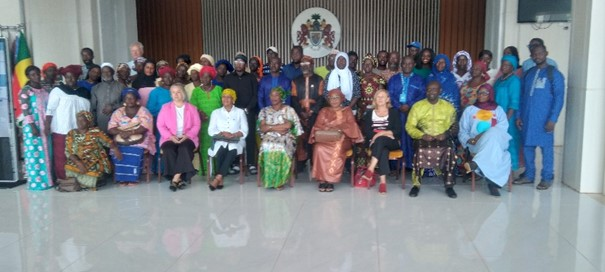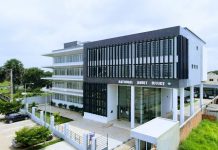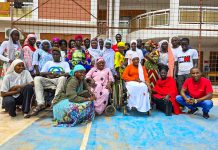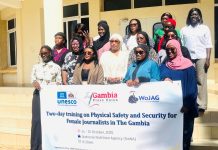By Kebba AF Touray and Ndey Sowe
The Food and Agriculture Organization (FAO) and its partners, on Thursday, 26 September 2024 validated the FISH4ACP updated Tanbi Co-Management Plan.
FISH4ACP is an initiative of the Organization of African, Caribbean, and Pacific States (OACPS), implemented by the Food and Agriculture Organization (FAO) with funding from the European Union and the German Federal Ministry for Economic Cooperation and Development (BMZ).
The project aims at enhancing the productivity and resilience of the Mangroves Oyster Value Chain.
Shibu Rampedi, FAO Representative, said: “Today’s gathering marks a milestone in our shared journey towards sustainable management of the Gambia’s mangroves oyster resources. As we come together, it is crucial to recognize that this co-management plan was initially vetted and approved in 2012.”
The plan, she added, had not undergone any formal review or update until the Gambia Program for the Sustainable Development of Fisheries and Aquatic Value Chain (FISH4ACP) project took the initiative.
FAO, she said, worked closely with key stakeholders including the Department of Fisheries of the Ministry of Fisheries, Water Resources, and National Assembly Matters, the TRY Oyster Women Association, harvesters, government institutions, and civil society organizations, to develop a comprehensive upgrading strategy for the value chain.
She said: “The update of the Cockle and Oyster Fishery Co-Management Plan for the Tanbi Special Management Area is a critical part of our efforts under the first component.”
The updated plan, she averred, incorporates new management measures and strengthens the institutional framework and it addresses the needs and concerns of those directly involved in and affected by the management of the oyster resources.
Rampedi said sustainable fisheries management is not a technical challenge, but a shared responsibility that requires collaboration, commitment, and a long-term vision, adding: “I am encouraged by the dedication and engagement of all the stakeholders present today.”
She also told the participants that their contributions are essential for the success of the co-management plan update and broader goals of environmental sustainability and community resilience in the Gambia.
Representative of the EU Delegation to the Gambia, Enrica Kalakini, described the project as a joint effort between the EU and the government of Germany, as well as a multiregional program for African, Caribbean and the Pacific.
She reported: “Under this multiregional program, the EU provided Euro 40 Million (equivalent to D3 Billion). The German Government contributed Euro 7.8 (equivalent to D600 Million Dalasi).”
Dr. Anna Mbenga Cham, Director of Fisheries at the Ministry of Fisheries, said FISH4ACP seeks to enhance the productivity and competitiveness of twelve fisheries and aquaculture value chains in ten OACPS member countries.
This, she said, makes sure that economic improvements go hand in hand with environmental sustainability and social inclusiveness.
She added: “It intends to pay special attention to small and medium sized business, because of its potential to deliver economic and social benefits, which is one of the policy objectives of the Fisheries sector.”
She described the sector as the entry point for poverty alleviation in the Gambia, and said it serves as a source of revenue and foreign exchange earnings, and the sector also contributes significantly to employment creation, livelihood opportunities, and income generation for women, men and youth.
The co-management plan allocates the exclusive use rights of the cockle and oyster resources of the TWNP to TRY as well as the management measures to achieve objectives.
These objectives, she highlighted, include harvesting tools, shift systems, community exclusive use zones, open access areas, mangrove conservation, development of oyster aquaculture, research, and monitoring among others.
Malang Darboe, the Deputy Permanent Secretary Ministry of Fisheries, said “The Fisheries sector is essential to the Gambia’s economy, playing a pivotal role in poverty reduction, food security and employment”.
He said that as one of the largest food providers, it supplies a significant source of animal protein and generates vital foreign exchange and livelihoods for many Gambians, particularly in vulnerable communities.
“The updated Tanbi Cockle and Oyster Fisheries Co-Management Plan, has been meticulously reviewed in collaboration with key stakeholders. It emphasizes sustainable resources management, strengthens community participation, and outlines critical strategies for harvesting, processing and marketing,” he said.
He hailed the EU, BMZ, FAO and UNDP for their invaluable financial, technical and administrative support towards the implementation of the FISH4ACP Gambia Oyster value chain project 2022-2025.




















